Retro Replay Review
Gameplay
Tales of Destiny brings a refreshing twist to the traditional JRPG formula by swapping out turn-based encounters for action-oriented, side-scrolling battles. Each fight unfolds on its own dedicated screen, where you move Stahn and his allies across two dimensions, chaining together attacks and special moves in real time. The combat system’s blend of light and heavy strikes, launch attacks and aerial combos keeps engagement high, especially when you’re facing waves of pirates or monstrous foes in dungeons and caves.
(HEY YOU!! We hope you enjoy! We try not to run ads. So basically, this is a very expensive hobby running this site. Please consider joining us for updates, forums, and more. Network w/ us to make some cash or friends while retro gaming, and you can win some free retro games for posting. Okay, carry on 👍)
While you directly control Stahn’s movements and actions, the rest of your party is governed by an AI that follows preset “battle styles.” You can pause the action at any moment to tweak each character’s behavior—prioritizing offense, defense or support skills—so that every encounter feels tactical. This flexibility means you can tailor the AI to match your approach, whether you favor crowd control magic, relentless swordplay or healing support.
Beyond combat, exploration on the world map is classic JRPG fare: towns brimming with side quests, shops to upgrade weapons and armor, and hidden treasures tucked away in forests, ruins and pirate hideouts. Character progression is straightforward but rewarding—earning experience points unlocks new Artes (special techniques) and boosts attributes, while treasure chests and merchant inventories invite players to hunt for rare gear. The pacing between story beats, optional dungeons and skill development strikes a satisfying balance for both newcomers and series veterans.
Graphics
For its era, Tales of Destiny’s visuals shine with vibrant, hand-drawn sprites and richly detailed backgrounds. Each environment—from the dragon ship’s cavernous hull to bustling port towns—is crafted to evoke a sense of scale and adventure. Parallax scrolling in key areas gives depth to forests and mountain vistas, enhancing the illusion of a living, breathing world.
Character animations during battle feel fluid and expressive, with Stahn’s sword slashes and jumping kicks landing with satisfying flourish. Special Artes unleash colorful effects that dazzle on screen without compromising clarity—very few actions get lost in a blur of pixels. Animated cutscenes interspersed throughout the story are simple by modern standards but still deliver memorable moments, such as the awakening of the talking sword Dymlos.
Menus, icons and dialogue boxes maintain a consistent, clean style that’s easy to read and navigate. While the PlayStation hardware imposes occasional loading pauses between areas, overall performance remains smooth. The game’s art direction leans into a classic fantasy aesthetic, ensuring that character designs and monster models stand the test of time more than many contemporaries.
Story
The narrative kicks off aboard a colossal dragon ship, where the young swordsman Stahn Aileron’s journey begins with a pirate ambush. In the chaos, Stahn stumbles upon an ancient blade—the legendary sword Dymlos. This sentient weapon has slept for generations, only rousing when the world faces a dire threat. With Dymlos as both guide and guardian, Stahn is thrust into a quest that spans continents and uncovers hidden perils.
As the storyline unfolds, Stahn assembles a diverse group of companions, each with their own motivations and backstories. Their interactions remain one of the game’s strongest pillars, delivering lighthearted banter, emotional reveals, and thought-provoking moral dilemmas. Encounters with eccentric NPCs, royal intrigues and dark cults gradually reveal the true nature of the looming danger.
Though the plot follows familiar JRPG beats—rescue missions, ancient evils, reluctant allies—it distinguishes itself through the dynamic between Stahn and Dymlos. The talking sword’s personality adds humor and pathos, creating memorable exchanges that drive character growth. By the time you reach the climactic showdown, the party’s bonds feel earned, and the stakes resonate beyond “world destruction” into themes of destiny, legacy and friendship.
Overall Experience
Tales of Destiny masterfully blends brisk, action-packed combat with a heartfelt fantasy narrative, offering an accessible entry point for players new to the Tales series. Its real-time battle system rewards skillful input and quick decision-making, while the ability to customize AI behavior keeps more strategic minds satisfied. Exploration and side activities pad out the world without overstaying their welcome.
Visually, the game’s colorful sprites and animated sequences hold up well, and its soundtrack—anchored by memorable melodies—enhances every dungeon crawl and emotional cutscene. The pacing stays steady throughout the 30–40 hour campaign, with just enough optional content to satisfy completionists without burdening casual adventurers.
Whether you’re drawn by the prospect of wielding a legendary talking sword, the thrill of real-time battles or the charm of classic JRPG storytelling, Tales of Destiny delivers a polished, engaging experience. It remains a standout title for fans of action-oriented role-playing games and anyone seeking a nostalgic journey through a beautifully crafted fantasy world.
 Retro Replay Retro Replay gaming reviews, news, emulation, geek stuff and more!
Retro Replay Retro Replay gaming reviews, news, emulation, geek stuff and more!
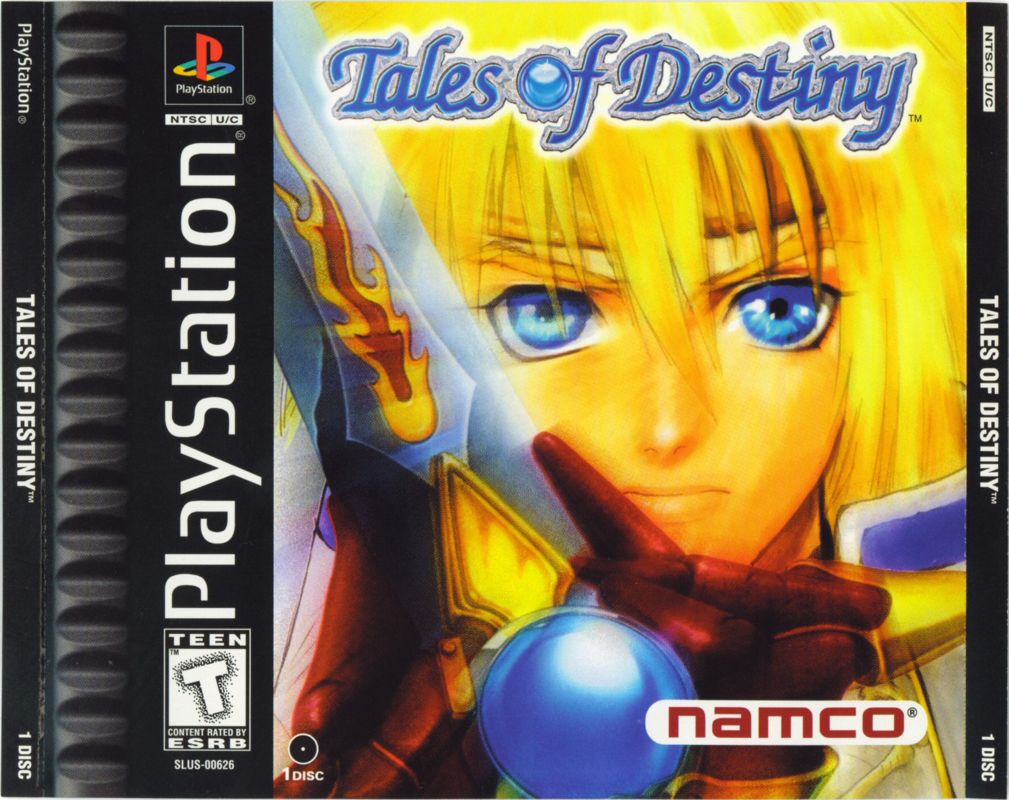
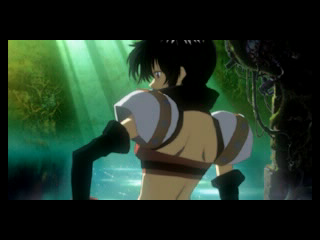
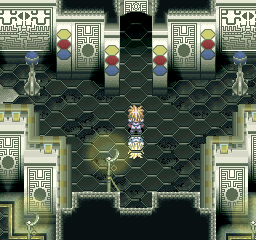
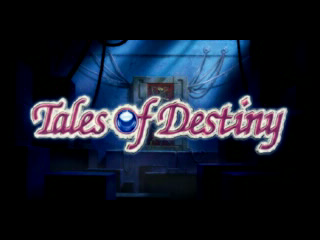
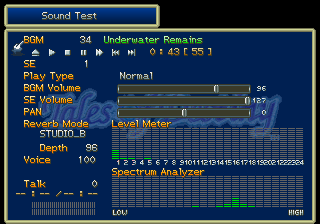
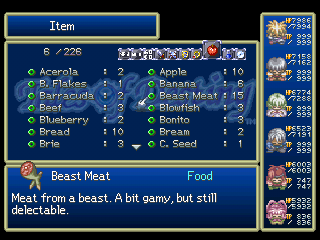



Reviews
There are no reviews yet.